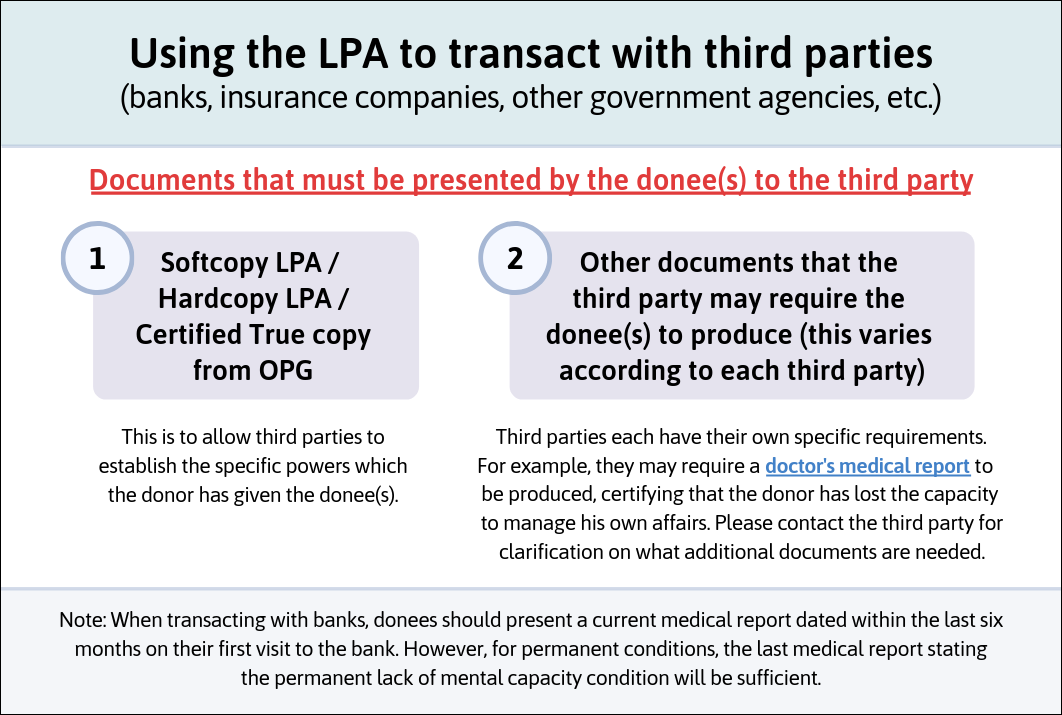Test header
Using a Lasting Power of Attorney
A Donee is able to transact on a Donor’s behalf only when the Donor has been certified by a registered medical practitioner to have lost mental capacity. All registered medical practitioners are able to provide such medical reports.
When transacting with any third party agency (e.g. banks, insurance agencies, HDB, CPFB, SLA etc.), please send the Donor’s electronic LPA to the agency via your OPGO dashboard, to ensure the latest version of the LPA is relied on. Other supporting documents may also be required by the agency e.g. NRIC of Donee(s), doctor’s medical report certifying Donor’s loss of mental capacity to manage his/her affairs. Click here for a sample of the medical report.
OPG does not intervene or advise on the requirements of third party agencies. Agencies have the discretion to impose requirements or conditions for the usage of their services and a Donee should liaise with them directly and seek legal advice when necessary. OPG cannot direct the agencies to accept the LPA.
An individual’s loss of mental capacity may be temporary or permanent. If the Donor regains capacity, the Donee must step aside for the Donor to make his own decisions. The LPA remains valid and can be used should the Donor lose mental capacity again.
